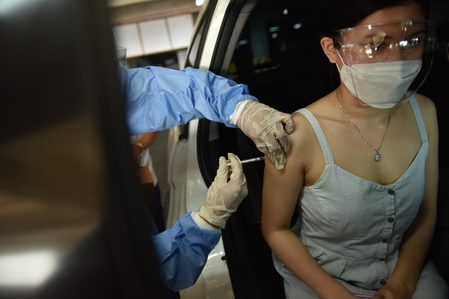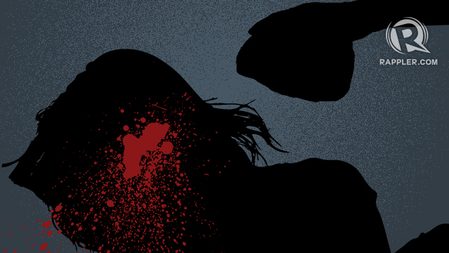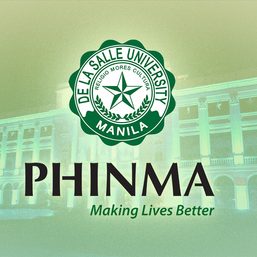SUMMARY
This is AI generated summarization, which may have errors. For context, always refer to the full article.
![[OPINION] In response to ‘The tragic irony of defending the tobacco industry’](https://www.rappler.com/tachyon/2021/04/tobacco-sq.jpg)
The opinion piece “The tragic irony of defending the tobacco industry amid a pandemic,” penned by Sophia Monica San Luis on April 1, was sweeping, one-sided, and factually flawed.
Ms. San Luis’ main premise is this: “If the history of the tobacco industry teaches us anything, it is that it cannot be an ally and it cannot be part of the solution, because its interests are diametrically opposed to public health.”
There is nothing tragic and ironic about the participation of the tobacco industry in the procurement process for the COVID-19 vaccines. The impassioned but powerful statements of high-ranking and respected lawmakers in making the moral call for an inclusive or participatory approach to battling COVID-19 carried in the article speak for themselves.
What got my beef is the generalization ruling out the convergence, the coming together, of government and private enterprise to address a national health crisis.
We are at war. We are waging an asymmetrical battle against a highly agile, largely invisible, and unspeakably ruthless enemy. And all wars unify a nation and mobilize its people to mount a common front against the enemy. It is not only possible; it is happening, if only Ms. San Luis cared to look.
Economic interests and social objectives don’t have to work at cross-purposes. Business and industry vis-à-vis public health and safety need not be a zero-sum game when it can be a win-win proposition.
It is called Public-Private Partnership – the principal policy of the Duterte administration’s engagement of business and industry in achieving both socio-economic objectives and national development. And that convergence is to be celebrated, not condemned and diminished.
Why? Because when congruence replaces conflict, the human condition triumphs. Isn’t this a noble thing?
Ms. San Luis noted that the industry “has a long history of using ‘corporate social responsibility’ to interfere with policymaking,” citing a document more than two decades old – the 2000 Report of the Committee of Experts on Tobacco Industry Documents – that supposedly outlines the strategies employed by the tobacco industry to undermine tobacco control efforts.
But don’t all other industries lobby state regulators, legislatures, and other state policy-making bodies?
Ms. San Luis also says: “Tobacco companies have also tried to use vaccination programs to direct attention away from the tobacco epidemic and tobacco regulation.”
The industry has long acknowledged the smoking epidemic and has drastically shifted away from traditional products that entail combustion. To this day, the industry remains one of the most – if not the most – heavily regulated.
Ms. San Luis faults the industry for lending corporate hands to the national anti-pandemic mobilization efforts: “Now, the tobacco industry is ‘exploiting the COVID-19 pandemic to provide resources to countries badly in need of them, framing itself as being part of the solution,’ according to the Global Tobacco Industry Interference Index 2020. Locally, tobacco companies have donated face masks, testing equipment, and ventilators, effectively framing itself as an ally in the fight against COVID-19.”
Would Ms. San Luis prefer the industry to play the villain instead of being one of the good guys these extraordinary times?
If tobacco firms and other companies she considers to be morally compromised refrain from contributing to the national effort to combat COVID-19 and its deadlier mutations, how far could the government go by its lonesome?
Ms. San Luis is profuse in the defense of the World Health Organization as if the global body is a pristine, sinless institution when it is anything but: “This is why the WHO Framework Convention on Tobacco Control (FCTC) reminds parties to be vigilant against ‘efforts by the tobacco industry to undermine or subvert tobacco control efforts,’ and why Article 5.3 of the WHO FCTC calls on parties to protect tobacco control policies from commercial and other vested interests of the tobacco industry.”
Human Rights Watch director Ken Roth said the WHO was guilty of “institutional complicity” when it gave credence to some of Beijing’s early claims about the COVID-19 outbreak. “WHO has absolutely refused as an institution to say anything critical about China’s cover-up of human-to-human transmission, or its ongoing refusal to provide the basic evidence,” Roth said.
“What we need is an honest, vigorous inquiry rather than further deference to China’s cover-up efforts.”
Ms. San Luis’ spirited defense of the Department of Health on the matter of donations from foreign charity arms of rich private individuals, unabashedly opposed to fresh initiatives favoring alternatives to combustible cigarettes, is simply breathtaking in its feeble grasp of the issue: “Is the DOH compromised by foreign donations meant to help the country achieve sustainable development goals to reduce premature deaths from noncommunicable diseases by one third by 2030? Or does the conflict lie in defending an industry that peddles a product guaranteed to kill one-half of its users?”
Isn’t there something morally suspect in foreign private entities endowing government regulators?
There are actual laws banning solicitation and receipt by government agencies and their officials of such foreign grants. When such solicitation and receipt are publicly acknowledged by the officials involved, then violations are committed requiring penalties and other sanctions set by law. Is a moral, public health objective justified by prohibited official acts? – Rappler.com
Clarisse Yvette P. Virgino is the Philippine representative of CAPHRA (Coalition of Asia-Pacific Tobacco Harm Reduction Advocates), which aims to educate, advocate, and represent the right of adult alternative nicotine consumers. She was able to quit smoking by switching to vaping. She is a consumer advocate for tobacco harm reduction, a contributor to a health magazine, and a law student.
Add a comment
How does this make you feel?




![[Vantage Point] Why are more ‘frentrepreneurs’ betting on franchising?](https://www.rappler.com/tachyon/2022/10/Why-are-more-%E2%80%98Frentrepreneurs-betting-on-franchising.jpg?resize=257%2C257&crop=142px%2C0px%2C900px%2C900px)




![[Time Trowel] Evolution and the sneakiness of COVID](https://www.rappler.com/tachyon/2024/02/tl-evolution-covid.jpg?resize=257%2C257&crop=455px%2C0px%2C1080px%2C1080px)


There are no comments yet. Add your comment to start the conversation.